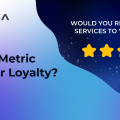The Evolution of CRM Management: The Vital Skills and Emerging Challenges in 2023
Reading time: about 7 minutes

The Emergence of Advanced CRM Management
The role of the CRM Manager has evolved significantly in recent years. Today, LinkedIn records over 200,000 professionals listing 'CRM manager' or 'CRM marketing manager' in their title, with more than 6,000 job opportunities available in the United States alone. Indeed further corroborates this with over 40,000 related job postings and an impressive average annual salary of $120,000. This growth underscores the rising importance of this profession. But why has the role of a CRM Manager become so significant?
Shifts in Sales Processes and the Growing Demand for CRM Managers
The surge in demand for CRM Managers can be attributed to changes in customer behavior and sales processes. The increasing influence of social media and Web 2.0 has transformed how customers purchase online. Statistics now indicate that customers follow an inbound path 85% of the time. Consequently, marketing teams are now tasked with building awareness and persuading decision-makers, which has led to the advent of numerous marketing automation tools.
When company executives devise their strategy and select KPIs, they require a CRM Manager to integrate these elements and operationalize the strategy seamlessly.
Defining the Role of a CRM Manager
The role of a CRM Manager can be nebulous due to variances in expectations within sales or marketing departments and the plethora of CRM tools and categories. Despite these differences, the CRM Manager's core role revolves around customer engagement, primarily through marketing personalization.
To facilitate this, every CRM Manager must be proficient in data analytics, system integration, and understanding the marketing technology toolkit.
Understanding Data
Data analytics is the bedrock of personalized marketing. Traditionally, marketing efforts were mass-oriented, but today's data-rich environment enables a more personalized approach. CRM marketers must therefore be adept at data analysis to optimize their target customer reach and manage media buying costs.
According to Gartner, integrating analytical techniques into most workflows will be commonplace, making data science the essence of marketing. Therefore, mastering how to design a data pipeline is crucial to stay ahead of competitors.
Data Collection and Integrity
Customer tracking involves collecting relevant customer information across multiple touchpoints like websites, emails, social media, and physical stores. However, with stricter data protection regulations like the GDPR, companies are now leaning towards a more controlled data minimization approach to prevent legal issues.
The quality of collected data can significantly impact the effectiveness of a data analytics pipeline. CRM managers must ensure data integrity, which involves validating data, detecting duplication, and ensuring accuracy and timeliness. Data cleansing processes may often be necessary to revise and eliminate duplicate entries, correct spelling mistakes, and add missing data.
Data Insights
Beyond data collection, CRM managers need to derive insights from the data. This process, known as business intelligence (BI), involves numerous approaches dependent on data quality, BI software, and data analyst expertise.
Businesses need to experiment to achieve marketing and sales goals, and data-driven experiments are cost-effective. These experiments consist of three components:
1. Business Metrics: These are parameters targeted for improvement, such as profitability, brand awareness, or customer retention.
2. Customer Segments: These are customer groups sharing specific characteristics used to test different hypotheses.
3. Data Visualization involves drawing insights from processed data and communicating them with other business stakeholders.
Essential Tech Skills
CRM managers must understand system integration and data storage to achieve advanced personalization. This includes knowing what a record, data model, and schema are and understanding when data migration is necessary and how its cost is estimated.
Additionally, CRM managers need to comprehend the fundamentals of servers and web customer tracking. They should also familiarize themselves with the marketing technology landscape. Given the large number of vendors in the market, selecting the right technology stack can be challenging. Consolidated platforms, like The Sparta Loyalty Platform, offer various integrated marketing tools, making them more user-friendly.
Alternatively, API-first solutions offer customizable building blocks that can be assembled to fit specific business needs. These platforms are designed for integration with other systems and typically have usage-based pricing.
But what about Web 3.0?
Web 3.0, often referred to as the semantic web or the Internet of Things (IoT), is predicted to profoundly transform many aspects of business, including the role of CRM (Customer Relationship Management) managers. Here are some ways in which the role of a CRM manager might evolve with the advent of Web 3.0:
Data-driven Decisions: With the development of Web 3.0, there will be a significant increase in the amount and diversity of data available. CRM managers will have access to a broader range of customer information, enabling them to create more precise customer profiles, predict customer behavior, and make more informed, data-driven decisions.
Personalized Customer Interactions: With the help of AI and machine learning technologies that are integral parts of Web 3.0, CRM managers can deliver more personalized customer experiences. They can use data to better understand customer preferences and needs, allowing for more targeted marketing, sales, and service initiatives.
Improved Customer Engagement: Web 3.0 enables more sophisticated and interactive platforms for customer engagement. For instance, through augmented reality (AR) or virtual reality (VR) technologies, businesses can provide unique, immersive experiences. CRM managers must leverage these technologies to enhance customer engagement and loyalty.
Enhanced Data Security: Web 3.0 is also set to enhance the decentralization and security of data, which is a critical concern in CRM. Managers must ensure they manage and protect customer data per these new technological standards.
Integration of IoT: CRM managers must integrate this technology into their strategies as the Internet of Things becomes more prevalent. IoT devices provide another touchpoint to gather data and engage with customers. For example, CRM managers could use data from a customer's smart home devices to offer personalized service or product recommendations.
Shift Towards Decentralization: Web 3.0 is often associated with a shift towards decentralized networks and services, including blockchain technology. This could lead to more peer-to-peer interactions and impact how businesses manage customer relationships. CRM managers would need to adapt their strategies accordingly.
Remember, it's essential for CRM managers and all other professionals to continually update their skills and knowledge to stay current in the rapidly evolving digital landscape. This includes understanding the impact and potential applications of technologies associated with Web 3.0
In Summary
A CRM Manager's role is pivotal in modern marketing strategies. They manage customer relationships, understand and analyze data, integrate systems, and leverage technology to engage customers effectively. As the landscape continues to evolve, these professionals will remain essential in shaping the future of marketing and sales processes.
Unleash the power of loyalty and witness the transformation it brings to your retail business.
Remember, loyalty is not just a buzzword; it's the foundation for long-term success in the dynamic world of retail. Together, let's revolutionize customer experiences and drive your business forward. Contact Sparta Loyalty today to embark on your loyalty program journey.
- Author: Alexander Kubicki and Sparta Loyalty
- Entry Date: 13 07 2023





